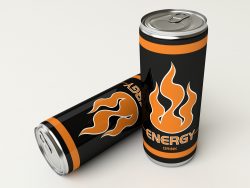 A study led by researchers at Texas A&M University has shown that some energy drinks have harmful effects on the muscle cells of the heart. The team observed that cardiomyocytes which are human heart cells that have been grown in a lab, when exposed to some energy beverages showed an increased heartbeat rate and a variety of other factors that affect cardiac function.
A study led by researchers at Texas A&M University has shown that some energy drinks have harmful effects on the muscle cells of the heart. The team observed that cardiomyocytes which are human heart cells that have been grown in a lab, when exposed to some energy beverages showed an increased heartbeat rate and a variety of other factors that affect cardiac function.
When these results are placed in the context of the human body, drinking these beverages has been linked to irregular beating of the heart, increased blood pressure, cardiomyopathy which is a disease of the heart muscle making it difficult to pump blood, and other conditions affecting the heart.
Global sales of energy beverages is estimated at $53 billion in 2018 and is rapidly growing. It has become important to understand any potential negative and unintended health problems associated with these drinks.
The consumption of energy beverages is not regulated and they are widely and easily accessible to all age groups over the counter. The consumption of them has been linked to a wide range of negative health effects in people and many of these effect the heart.
The team evaluated 17 widely available drinks which are sold over the counter. They then treated each drink with cardiomyocytes. They additionally studied the composition of each drink using novel methods. They then compared the effects and the differing ingredient concentrations of each drink and were able to conclude which ingredients might be contributing more to the adverse effects on the treated cardiomyocytes.
Through using mathematical models, they will able to determine that the possible presence of adenine, theophylline, and azelate are all substances that can result in negative effects on the heart. Very little is known in regards to these ingredients that could contribute to the negative effects of the energy drinks on the heart.
The evidence for the cardiovascular effects from these beverages on humans does remain inconclusive since the controlled clinical trials were mainly limited in the number of participants. The only tested a limited number of energy beverage types and were difficult to compare directly due to the fact that they employ different methods to evaluate the function of the cardiovascular system.
Additional research on the ingredients which were identified in this study is warranted to ensure the safety of consuming them, especially with consumers who have pre-existing health conditions.
However, the current study does show that some of the tested energy beverages have effects on human cardiomyocytes and the data does corroborate other studies on humans. The hope is that consumers will carefully consider the performance enhancing benefits of these particular beverages versus the emerging data which has suggested that they may have real adverse effects.
The team also hopes that the FDA will take a closer look at whether these drinks may need to be carefully reviewed in regards to possible labeling of their possible adverse health effects, and also whether certain age groups and susceptible sub-populations should be advised against drinking them.
To view the original scientific study click below





